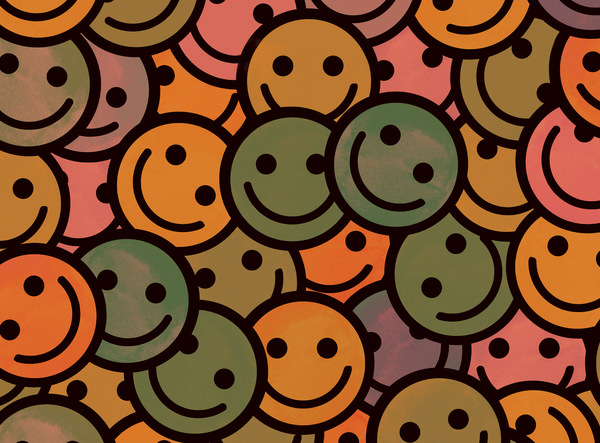The Equality Effect
A note from the editor

Holding on to hope
Why should we hold out any hope for greater equality when the very richest people in the world are taking more and more? Pessimistic reactions are commonplace. But there is often great pessimism just at the point when a great injustice becomes apparent – when it becomes widely accepted that it is an injustice and people start to correct it.
The evidence that inequality is harmful comes largely from the rich world. In the 1960s affluent countries were so similar that it was not possible to see the negative effects of greater inequality. But since then some have become much more unequal, providing us with outcomes that illustrate the harm so well.
Today, for many people – especially in the most unequal of countries such as the US, Brazil, the UK and South Africa – the idea that your children and their children might live more equitable lives can seem like a pipedream. But evidence from the more equal affluent nations – as well as from a growing number of poorer countries where inequalities are now falling – shows what is possible. This evidence is fully laid out in my new book The Equality Effect.
Elsewhere in the magazine Ana Palacios’ remarkable photo reportage from Togo and Benin brings to life efforts to ensure a safer future for trafficked children. And our Making Waves profile of Indian activist Prafulla Samantara demonstrates how not giving up can sometimes bear fruit.
Danny Dorling for the New Internationalist co-operative.
www.newint.org
The big story
The Equality Effect
504 - July, 2017
The political landscape may seem particularly bleak at present. But, if we stand back and look at the bigger picture, the dominance of rightwing populists and neoliberal policies is likely to be a temporary blip. The evidence is mounting that greater economic equality benefits all people in all societies, whether you are rich, poor or in-between. Once this is widely understood, politicians and policymakers will be forced to take note, as Danny Dorling explains.
Features
When we were more equal
504 - July, 2017
A few fragments from the surprising history of equality. Cartoons by Ella Furness.
The rich, the poor and the earth
504 - July, 2017
While it is clear that equality matters in terms of health and happiness, surprising new data reveals that it is also better for the environment – in the more equal rich countries, people on average consume less, produce less waste and emit less carbon.
Firing up the change
504 - July, 2017
The advantages of greater equality are clear – the more so as the negative effects of widening inequality in some countries become apparent. But how can we help turn the tide?
Lessons from the thirst economy
504 - July, 2017
Conflicts over water are on the rise in India, but climate change is not the only culprit. Fiona Broom reports on a powerful water mafia that is sucking India dry.
To reach a place of safety
504 - July, 2017
Photographer Ana Palacios documents the work to rescue and rehabilitate trafficked and abandoned children in Togo and Benin.
Blogs
‘Freedom can’t be contained by a wall’
504 - July, 2017
In an explosive interview to New Internationalist, the Kurdish female leader Bese Hozat opens up about peace, the party’s view on the region and the independence referendum in South Kurdistan, and accuses Turkey, Saudi Arabia and the West to have incubated Isis. By Karlos Zurutuza.
Opinion
Agenda
Introducing... Lenin Moreno
504 - July, 2017
Ecuadorians replaced one Leftist president with another
Reasons to be cheerful
504 - July, 2017
Rubbish school furniture; Solar power going cheap; Nutritious tents
Regulars
Letters
504 - July, 2017
Praise, blame and all points in between? Your feedback published in the July 2017 magazine.
Pablo's fair
504 - July, 2017
Amy Booth visits an event of festive solidarity in support of a desperate cause.
Country Profile: Afghanistan
504 - July, 2017
The facts, figures, images and NI assessment of Afghanistan.
Making Waves: Prafulla Samantara
504 - July, 2017
The Indian human rights defender who stopped a mining giant in its tracks speaks with Veronique Mistiaen.
Southern Exposure: Shuchi Kapoor
504 - July, 2017
Dancing to her favourite Tamil song on New Year’s Eve
And finally... Fatoumata Diawara
504 - July, 2017
The internationally acclaimed Malian musician tells Megan Iacobini di Fazio about the power of song and why ‘world music’ is just music from the world.
Film, Book & Music Reviews
Mixed Media: Film - Hot Docs
504 - July, 2017
Our pick from the 2017 Toronto Hot Docs – the largest documentary film festival in the world
Mixed Media: Books
504 - July, 2017
I Was Told to Come Alone; Trans Like Me; We: Reviving Social Hope




























